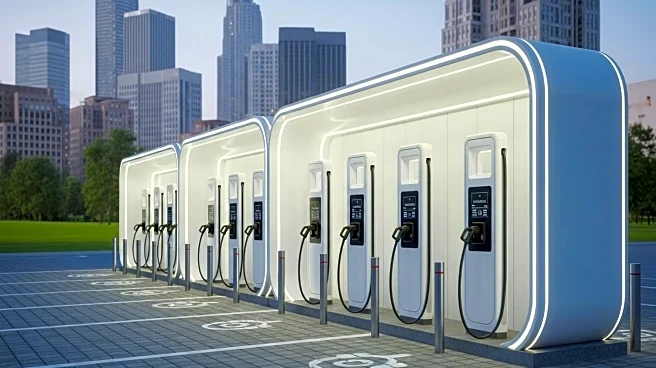What is the story about?
What's Happening?
The European Union has reaffirmed its commitment to phasing out internal combustion engine vehicles by 2035, despite pushback from automakers. Industry leaders have expressed concerns over the feasibility of this target, citing challenges such as China's dominance in the EV supply chain and new U.S. trade barriers. The EU's decision comes after extensive debate and is seen as crucial for meeting climate goals. While exceptions for plug-in hybrids and range-extended vehicles are being considered, a final decision is expected in spring 2026.
Why It's Important?
The EU's steadfast approach to eliminating combustion engine vehicles underscores its dedication to climate change mitigation. This policy is pivotal for reducing emissions and promoting sustainable transportation. However, the automotive industry faces significant challenges, including adapting to new technologies and geopolitical shifts. The outcome of this policy could influence global automotive trends and impact economic dynamics within the EU.
What's Next?
The European Commission will continue to evaluate the feasibility of the 2035 phaseout, with potential adjustments for hybrid technologies. Industry stakeholders are likely to intensify lobbying efforts, seeking more flexible regulations. The ongoing debate will shape the future of the EU's automotive sector and its alignment with climate objectives.
















